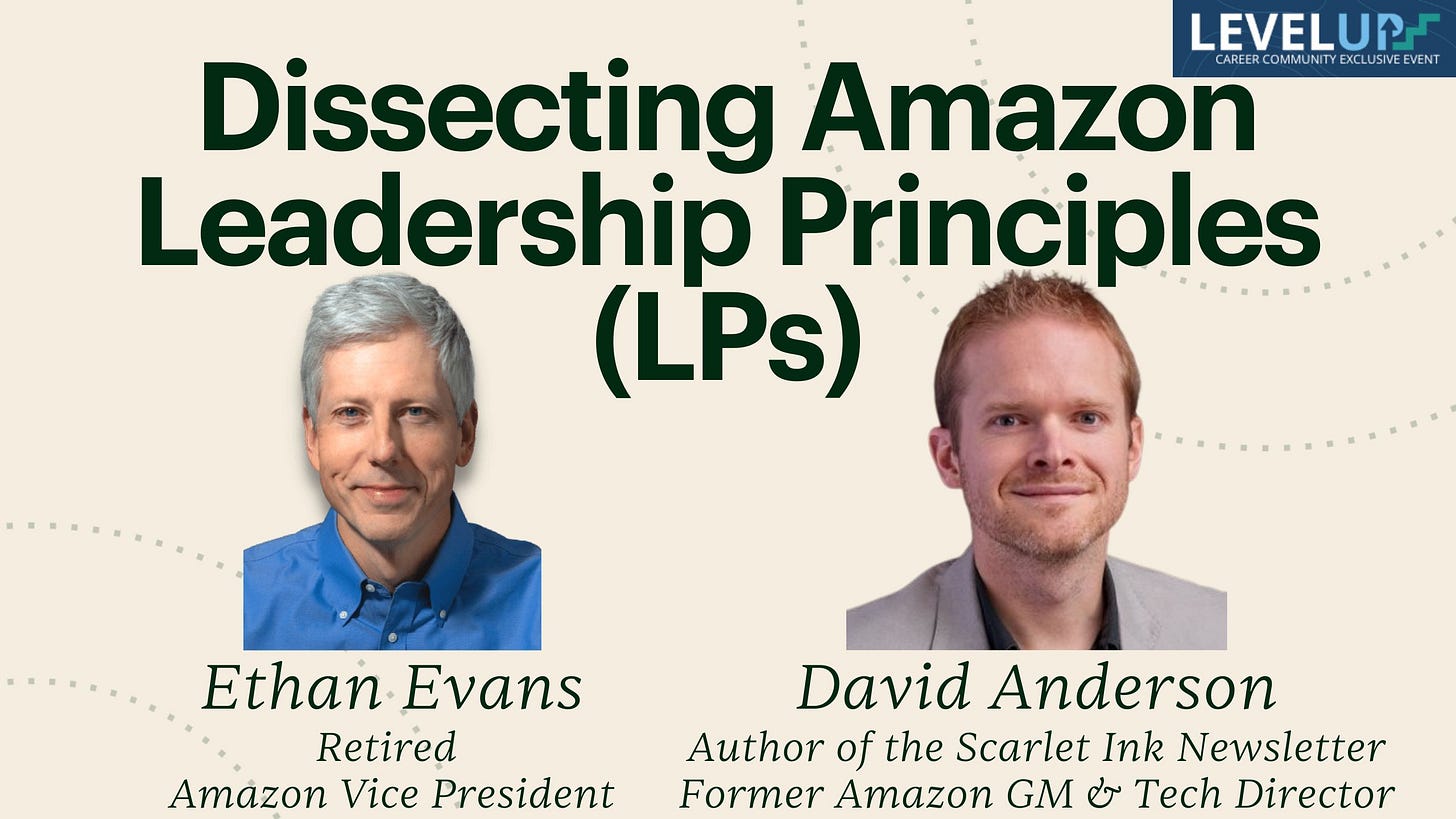Weaponizing Amazon Leadership Principles
See the real goal and return the discussion to the goal
Amazon’s famous Leadership Principles (LPs) are often abused inside the company.
Note: the same underlying behavior shows up at all companies, so the lesson applies wherever you work.
Weaponizing a Leadership Principle means using it to shame or criticize someone else rather than to guide collaboration or to make tough decisions.
Two examples:
If I want you to do something for my team and you are not doing it, I can say that you “are not Earning Trust” with our organization.
If you are not working overtime to deliver something, I can say that you “lack Customer Obsession” or “High Standards.”
The 16 LPs cover enough ground that I can find a way to claim that one of them supports my position or desire.
Why do people abuse principles or guidelines?
People want to get their way.
When they lack the power to give orders, they will reach for a convenient club, the LP, and use it to make you do as they wish. If they cannot appeal to rank or power, they appeal to anything else they can to influence you.
Sometimes this becomes a crude attempt to apply the LP not as intended, but as a way to ensure an outcome.
This attempt is not always fully conscious and maliciously planned.
Often it is an outgrowth of emotion and frustration with not getting what they feel they need, making them try anything to get it.
The best way to address such input requires that you see through the specific content of the agenda that is driving it.
We are naturally drawn to responding to the criticism that we are falling short of the standard or guideline within the company.
But what is really at stake is the critic’s goal.
The most mature approach is to see the real goal and return the discussion to the goal, why you cannot meet the request as made, and then move the conversation to collaborative problem-solving.
To do this, you will need to reassure the speaker that you hear their need and you want to help them.
FYI. I wrote a follow-up article on degenerate LPs here and I shared the story of how I wrote a part of the Amazon LP ‘Ownership’ here.
Dissecting Amazon Leadership Principles (LPs) for Amazonians & Non-Amazonians
I wrote part of one of the Amazon LPs (’Ownership’) and David Anderson wrote one of the most popular posts on the web about the whole list.
We teamed up for a deep discussion on the LPs and other leadership topics.
Watch our chat and read the takeaways here.
Audience Insights
I have consolidated additional ideas worth considering from my LinkedIn audience, including:
While you need to listen to criticism for what is useful, understand it as the critic’s issue, not yours. However, do not use this as an excuse to ignore painful truth.
Company LPs can be useful. The key is to teach your employees how to wisely apply them. An effective method is to have an LP guideline with actual examples of what it looks like to appropriately exercise each LP with examples of “under” and “over” indexing.
It can be difficult for leaders to know if LPs are being weaponized because leaders are not always in the room. As a leader, help your teams see through superficial criticism to find the real problem. Instill a coaching mindset with your team and show it by real-time demonstration.
This same concept applies when someone weaponizes visibility. For example, have you sent out a status update email, and instead of someone responding privately they “reply-all” with obvious intention of complaining in front of leadership and peers? Do not act defensively, that creates an emotional response. Instead, bring the conversation back to the original topic (without responding to their attack).
If you are the one delivering information/feedback, consider how multiple LPs play into your message as you will find there is usually a balance (strong on one LP, weak on another).
Share This Article
If this candid advice benefits you, share it inside your workplace or with others who might get value. My goal is to reach and help as many people as I can, and the reach grows through your sharing (thank you!).
Connect With Ethan & Jason
Follow Ethan on LinkedIn.
Get Ethan’s career advice on YouTube.
Connect with Jason (Ethan’s COO) on LinkedIn.
Learn more about Ethan’s live online courses and on-demand courses.
Contact us for corporate training, speaking, podcast appearances, and more.
Many subscribers expense this newsletter to their Learning & Development budget, use this email template to send to your manager.




